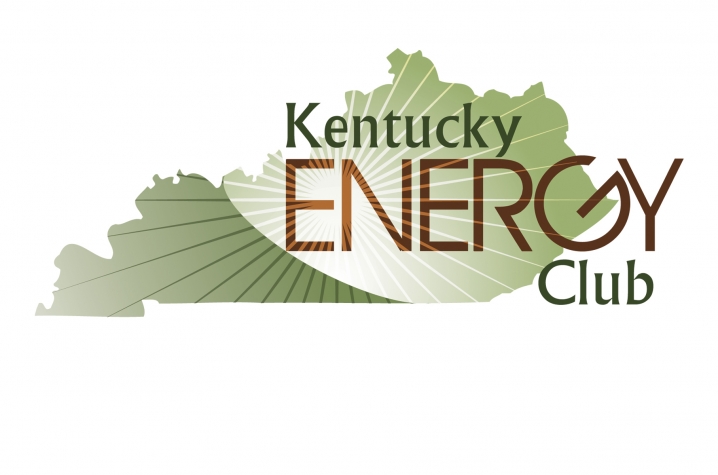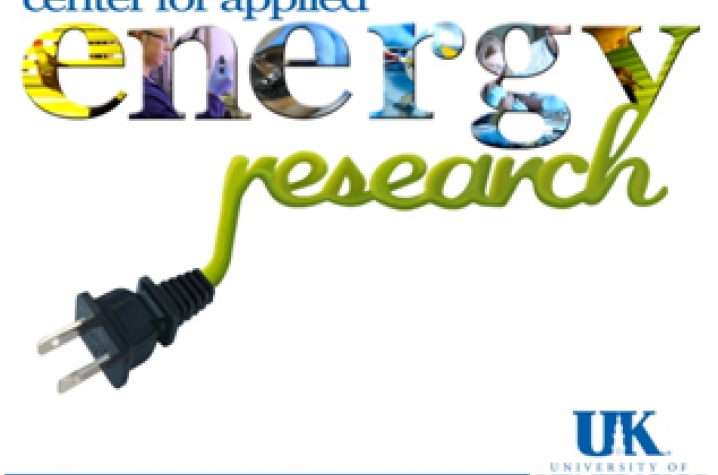UK Helps to Establish University Energy Clubs
LEXINGTON, Ky. (Feb. 10, 2011) - With vast resources in both fossil fuels and biomass, the Commonwealth of Kentucky has already begun to see the development of industries supporting energy storage and clean coal technologies. With this comes a great opportunity for Kentucky students from all sectors who may find themselves entering energy-related careers. These same students will also become the state's future policy makers, business owners, educators, regulators and designers which makes it critically important to engage these students in energy issues now.
To address this, the Kentucky Energy and Environment Cabinet has provided a grant to the University of Kentucky Center for Applied Energy Research (CAER) to help develop educational Energy Clubs at the post-secondary level all around the state. These "Kentucky Energy Clubs" are being created over the next few years to advance in-depth understanding of new clean coal technologies, electricity production and emission issues, as well as foster interest in the pursuit of energy-related science and economic careers.
The Kentucky Energy Club project has been initiated at the University of Kentucky and the University of Louisville, and CAER's Bree McCarney is serving as the program coordinator.
"This year our main focus will be on recruiting and building membership of the Energy Club at UK and other universities around the state," said McCarney. "All of the top-20 universities have energy clubs, and this club will be the first of its kind in Kentucky."
After this initial year, the established clubs will begin organizing outreach programs with their local K-12 schools, and will develop materials which individual students can use in visiting their hometown schools to increase energy-relevant educational aspirations among students who will be entering the universities in the future.
McCarney has been working with a solid base of UK students and traveling around the state to get these new clubs established in Kentucky universities, including Western Kentucky University, Morehead State University and Eastern Kentucky University.
Evan Schroader, a mechanical engineering junior in the UK College of Engineering, is serving as president of the UK Energy Club.
"It's especially important for Kentucky to have energy clubs, because as our country pushes towards renewable energy resources, we need to realize that those resources are only effective in areas that have the resources for them," said Schroader. "Kentucky doesn't have the abundant resources for solar or wind power, but what we do have is biomass and coal. Our state's abundance of coal provides us with plentiful amounts of energy that allow our state to have major industry."
The University Energy Clubs will be student organizations, but set-up to include a broad constituency of students, faculty, alumni and others (high school students, P-12 educators, etc). Students will be drawn from engineering, natural sciences, business and economics, law, design, agriculture and communications, and the clubs will be established in such a way as to encourage broad involvement across any relevant discipline, as well as for those with simple individual interest in the topics.
McCarney hopes that many existing student activities at UK can also be used as a basis to get students involved in the UK Energy Club, such as the Solar Car Team, Solar Decathlon Team, senior level design courses in engineering and design, and the Global Venture Challenge teams.
"The plan is to provide bridges to these things via the club. Energy is a major issue today to students not just in engineering, but from all colleges."
One of the major tasks the UK Energy Club is now taking on is the planning of UK's annual Energy Fair, a one-day open house that invites elementary school students to campus to learn about energy issues and opportunities.
Sponsored annually by the CAER, this year's fair will be held Feb. 15 at the UK Student Center Grand Ballroom. The event is a "state fair" format, with ongoing demonstrations and give-away items at exhibit booths, while on-stage events happen every half hour in a separate room.
"We will have around 300 children coming to this year's fair, and they are VERY excited to be participating," said McCarney. "They will be riding in coach buses, having lunch on campus and getting to learn about energy in all kinds of exciting ways."
The students attending are from local schools in Fayette County with diverse and traditionally underrepresented populations. Some of these schools do not have dedicated science labs, so the Energy Fair serves as an opportunity for the kids to participate in hands-on science.
A full list of exhibitors and sponsors of the UK Energy Fair is attached below the photo gallery.
Schroader, who works at CAER in the Biofuels and Environmental Catalyst group, hopes to one day enter into the research and development field, focusing on renewable energy and sustainability. He believes his involvement in the UK Energy Club will help him get to that point.
"It is important that universities have energy clubs so that students have the opportunity to broaden their knowledge base and build their own opinions rather than simply accepting and repeating what they hear from the news," he said. "It's all a matter of gaining perspective."
Anyone is welcome to get involved in the University Energy Clubs, at UK or elsewhere. The UK Energy Club meets every other Thursday at 7 p.m. in room 231 of the UK Student Center.
"We encourage students, faculty, staff and the community who has any interest in learning more about energy issues to join us," said McCarney.
For more information about meeting times, or how to become involved in the Energy Clubs or UK Energy Fair, visit the Kentucky Energy Club on Facebook or contact ukykec@gmail.com.
MEDIA CONTACT: Jenny Wells, (859) 257-1754 ext. 254; Jenny.Wells@uky.edu







